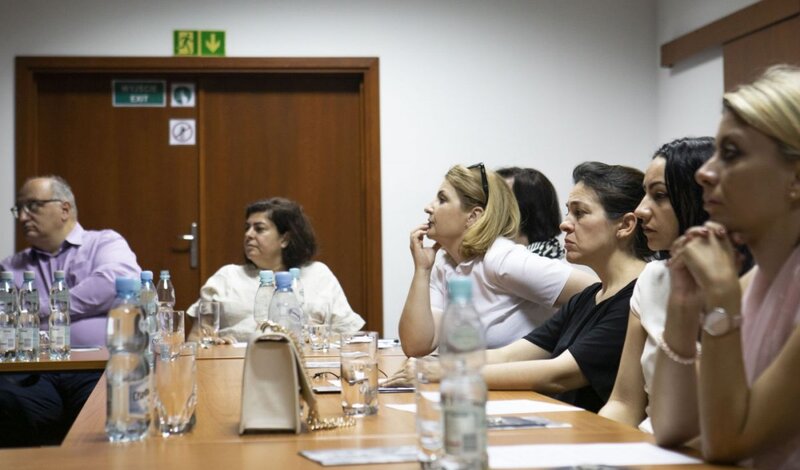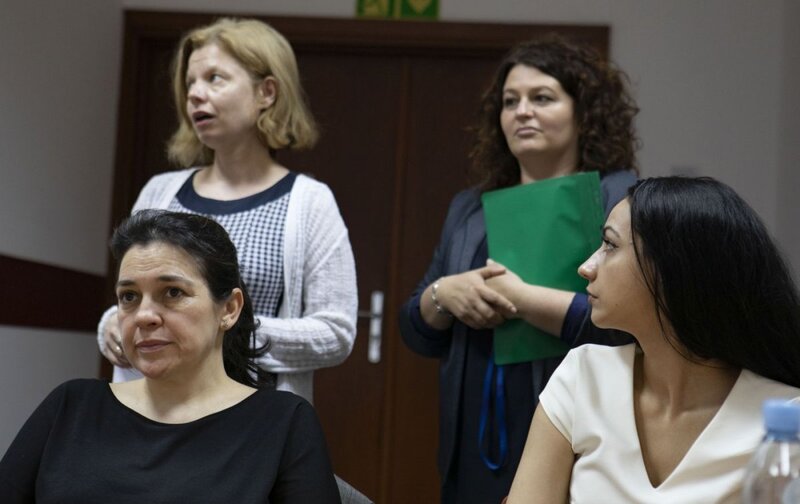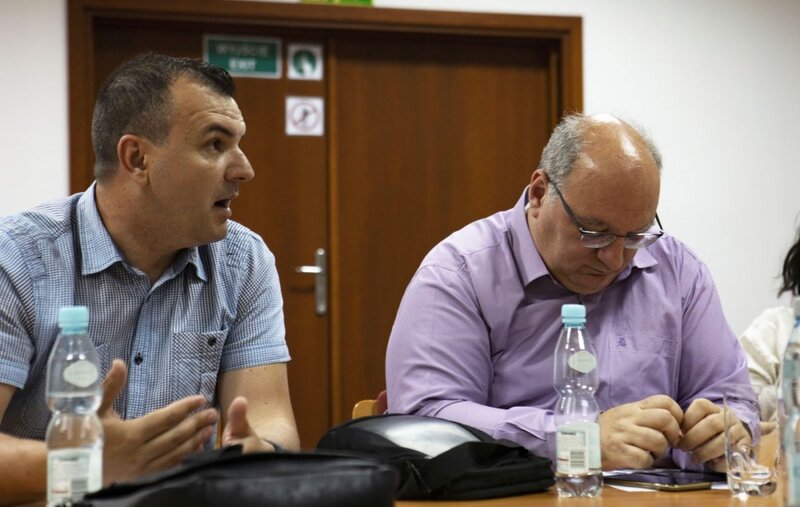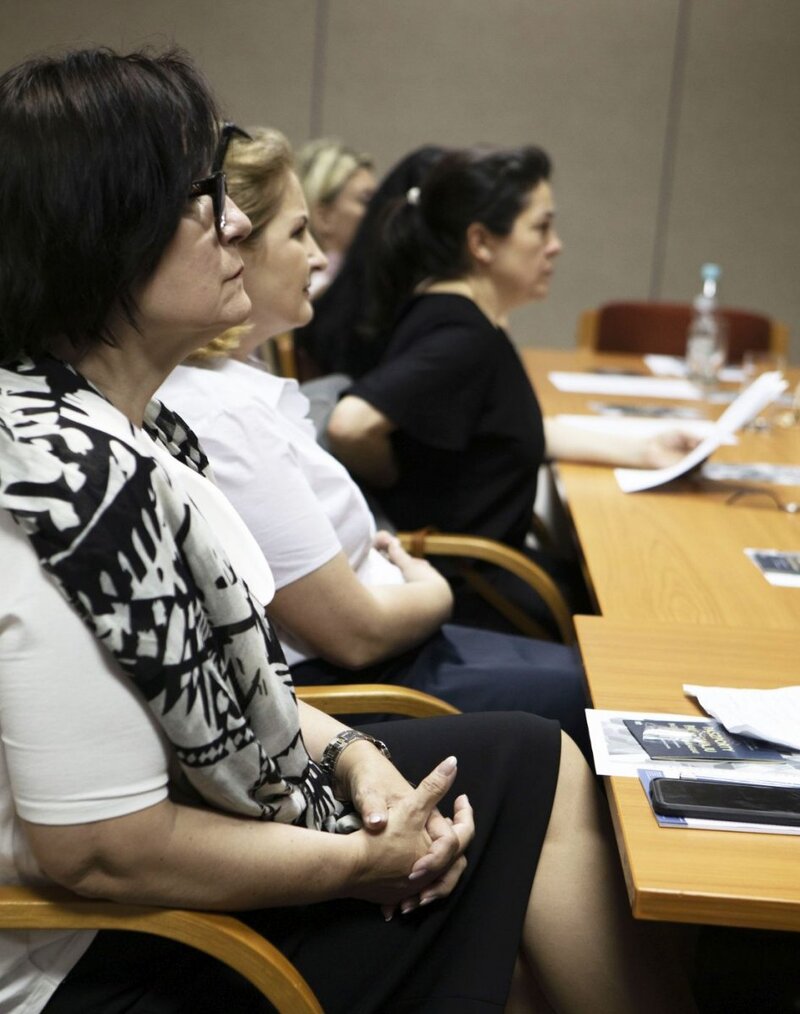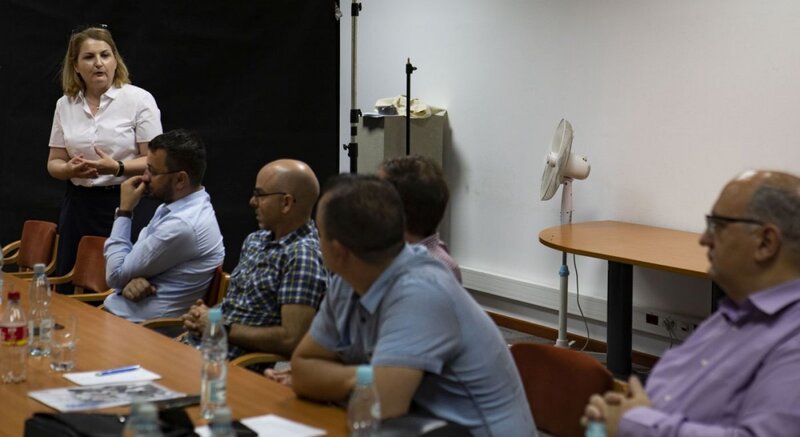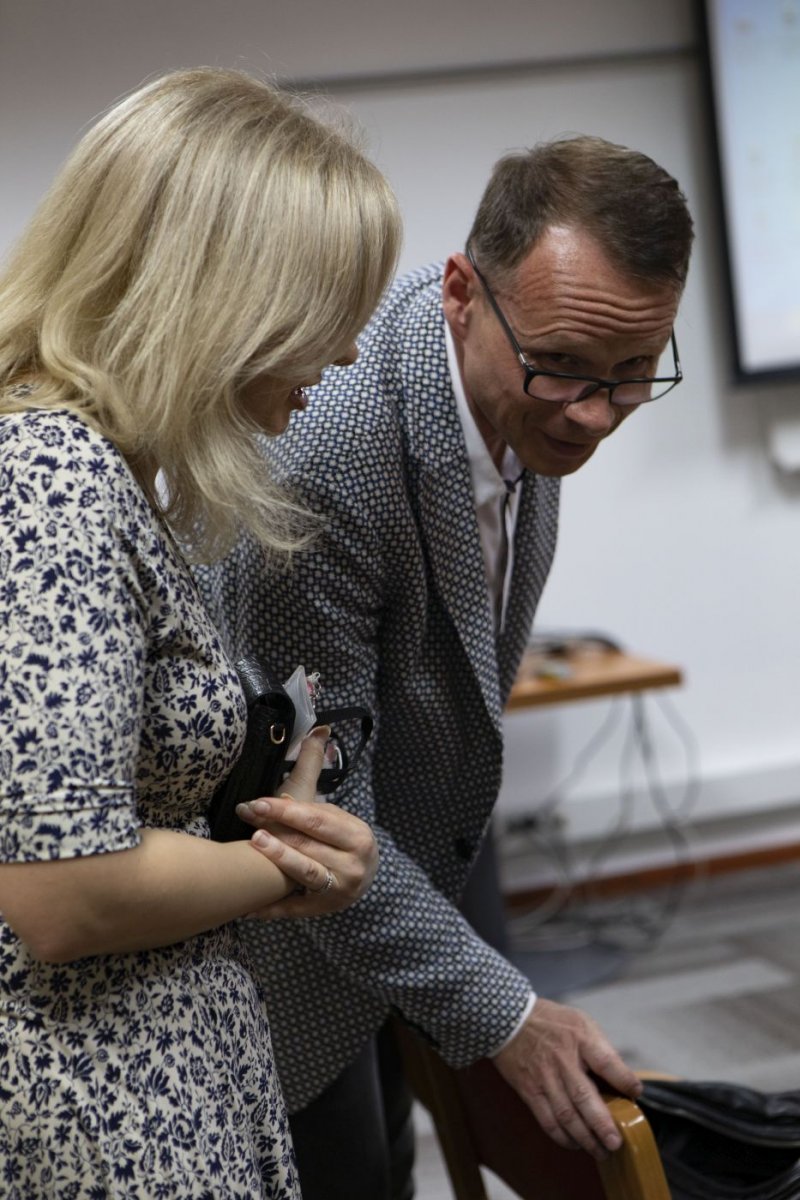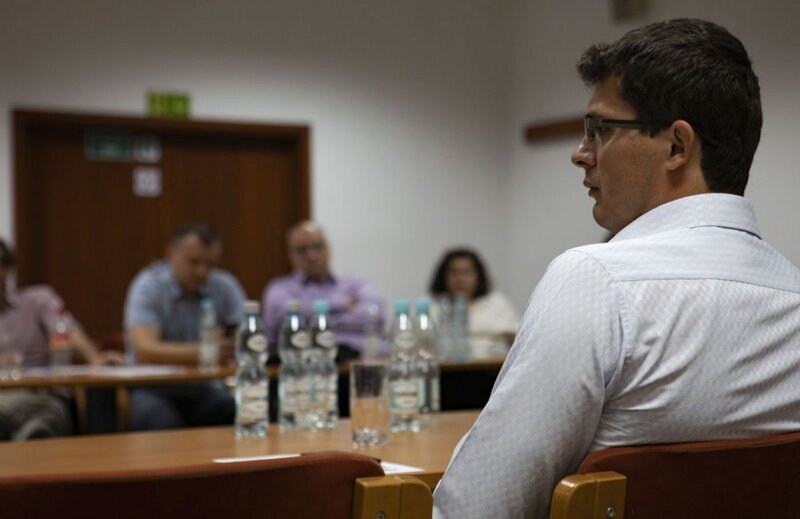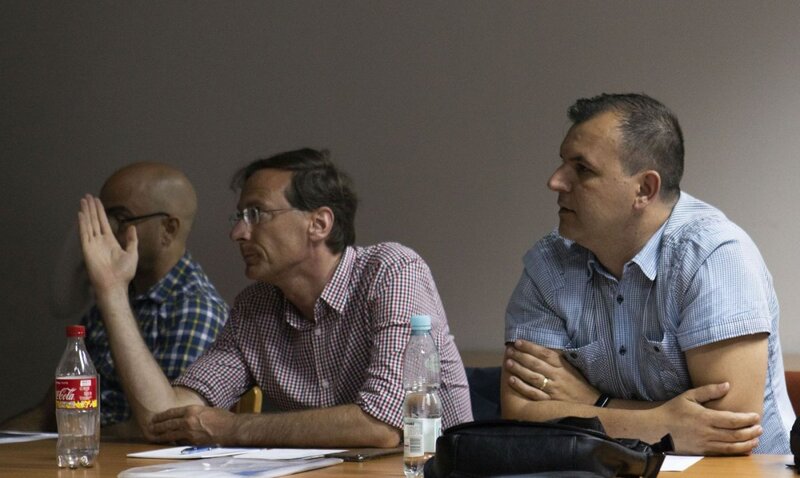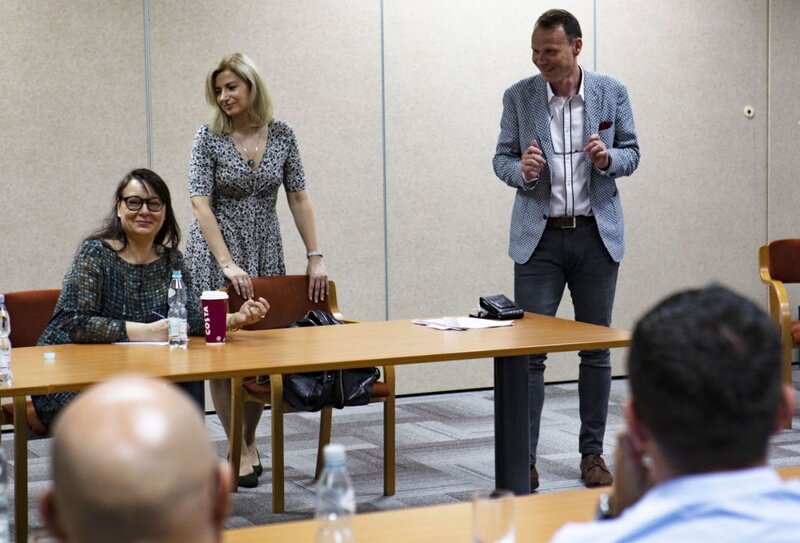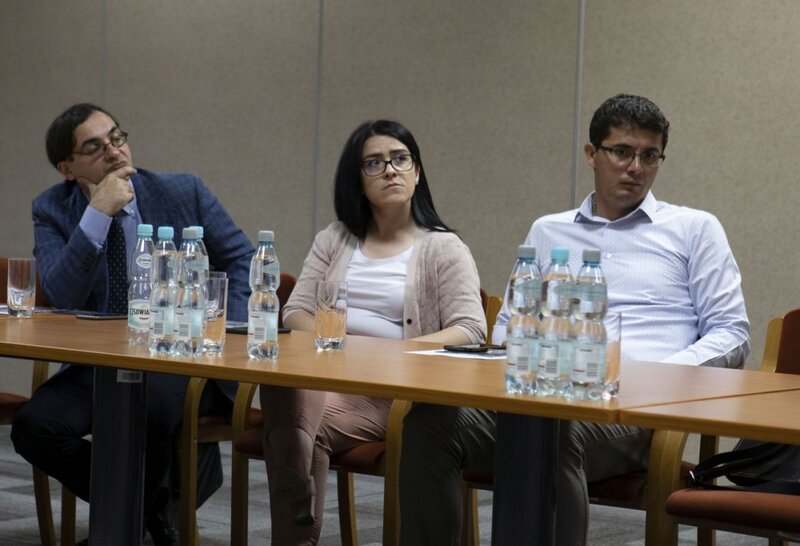The guests hosted by the Institute learned basic information about the resources, history, mission and activity of the Institute of National Remembrance. They were particularly interested in the figure of Captain Witold Pilecki, a Polish hero who became famous as a volunteer to Auschwitz concentration camp, and after the war was sentenced to death by the Stalinist authorities. Pilecki is also one of the characters portrayed in the IPN production "The Unconquered", which was screened during the meeting. In the second part, the judges and prosecutors heard a lecture delivered by the Prosecutor of the Commission, Bogusław Tomasz Czerwiński on, the activities of the Chief Commission for the Prosecution of Crimes against the Polish Nation, and the specifics of investigations conducted by the IPN’s prosecutors. Various types of investigations were characterized. These include: historical investigation into the Katyń Massacre, Stalinist trials, e.g. the show trial of Witold Pilecki, the investigation into the introduction of martial law in Poland, the case of attempted poisoning of Anna Walentynowicz by the communist authorities, the murder of a Pole by the Stasi at the Friedrich Strasse station, with possible participation of Polish authorities, as well as the ongoing investigation initiated upon the notification of the Platform of European Memory and Conscience regarding the killings of Polish citizens on the Czechoslovak-Austrian border.
The guests asked about the details of the trial of General Czesław Kiszczak, pointing to analogies with the proceedings against Erich Honecker in the former East Germany. Some space was also devoted to the discussion of the legal grounds for prosecution for crimes that, at the time of being committed, were in conflict with applicable laws. Prosecutor Czerwiński remarked that at some point of their existence even the countries of the former communist bloc ratified international legal acts concerning, inter alia, human rights, which under the hierarchy of legal acts is the basis for undermining national laws. He also referred to the philosophical-legal formula by the German lawyer and philosopher Gustav Radbruch. It claims that if a legal norm drastically violates basic moral norms, it does not apply.
There was also a question whether the IPN had dealt with cases of collaboration between Polish citizens and the Germans during the occupation. Prosecutor Czerwiński confirmed that such proceedings had been commenced upon the initiative of the Chief Commission. He noted, however, that on the basis of the evidence gathered in these cases, it can be stated that this collaboration was never of an institutional nature. In addition, the Polish Underground State punished cases of collaboration against Polish citizens of Jewish origin with the death sentence. The executions were carried out under the judgments issued by underground courts. Poles never created any form of armed forces under the auspices of the Third Reich.
Finally, the guests received the English edition of the "W" Report, published by the IPN and the Pilecki Project Committee, and the album edition of the Jurgen Stroop Report on the liquidation of the Warsaw Ghetto. The original document is in the archival resources of the Institute of National Remembrance. Thanks to the efforts of the authorities of the IPN Archive, the Jurgen Stroop Report is now included in the UNESCO World Heritage List.
Cooperation between the Institute of National Remembrance and the National School of Judiciary and Public Prosecution regarding the organization of similar visits at the Institute has been ongoing since 2015.
